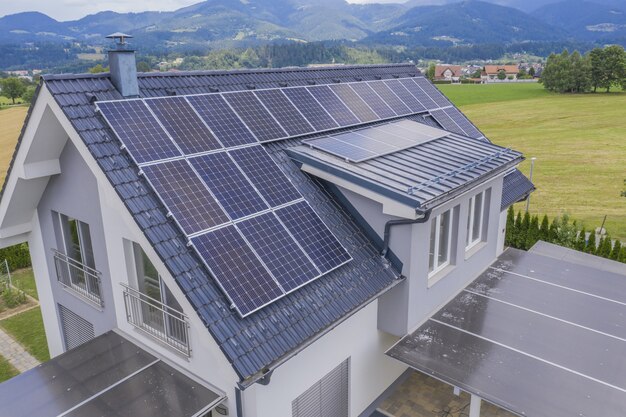
Sponsored article
As homeowners increasingly turn to sustainable solutions for their energy needs, residential solar energy systems offer a promising avenue for long-term benefits. From reducing electricity bills to decreasing carbon footprints, these systems not only enhance home value but also provide a step toward energy self-sufficiency. In this article, we delve into the myriad advantages of installing solar systems at home, exploring their role in financial savings, energy efficiency, and environmental conservation.
Investing in residential solar energy systems offers notable cost savings and financial benefits for homeowners. By harnessing the power of the sun, residents can significantly reduce their electricity bills, often seeing savings of up to 50% or more over traditional energy sources. Alongside these direct cost savings, homeowners can also take advantage of various solar incentives designed to make the switch to renewable energy more affordable. These include federal tax credits like the Investment Tax Credit (ITC), which can cover up to 26% of the installation costs, as well as state-specific programs that further ease the initial financial outlay. Solar systems also provide an impressive ROI as they increase the value of your home and typically pay for themselves within five to ten years, delivering long-term financial benefits. Partnering with a local expert like solar company ct ensures you receive the best guidance throughout the installation process and maximize your savings.
Adopting residential solar energy systems significantly enhances energy independence by allowing homeowners to produce their own renewable energy, thereby reducing reliance on the grid. These systems convert sunlight into electricity, which not only powers homes but also decreases dependence on traditional energy sources prone to price fluctuations and supply instability. With solar panels, homeowners can achieve a higher level of energy efficiency, as these systems are designed to optimize power production and consumption. This transition to self-generated power fosters self-sufficiency, empowering homeowners with the ability to control their energy usage and costs. Furthermore, as solar technology advances, the efficiency of converting and storing solar energy continues to improve, amplifying the long-term benefits of this renewable energy source. By minimizing grid reliance, residential solar systems play a pivotal role in shaping a sustainable future, providing households the autonomy to manage their energy needs while contributing to a broader environmental cause.
Installing residential solar energy systems offers numerous environmental benefits, most notably by significantly reducing a home’s carbon footprint. By harnessing the power of the sun, homeowners can decrease their reliance on fossil fuels, thus lowering greenhouse gas emissions and promoting sustainability. Solar panels generate clean energy, allowing households to tap into an abundant and renewable energy source that has minimal ecological impact compared to conventional energy production methods. This shift to solar not only aligns with a broader commitment to sustainability but also contributes significantly to cleaner energy production, which is crucial in the fight against climate change. With solar energy systems, homeowners are making a proactive choice to reduce their carbon emissions and support the transition to a more sustainable energy infrastructure. The ecological impact of adopting solar technology is profound, as it helps to preserve natural resources, reduce pollution, and foster a healthier environment for current and future generations. In this way, residential solar energy systems play a vital role in promoting a sustainable, carbon-conscious lifestyle.